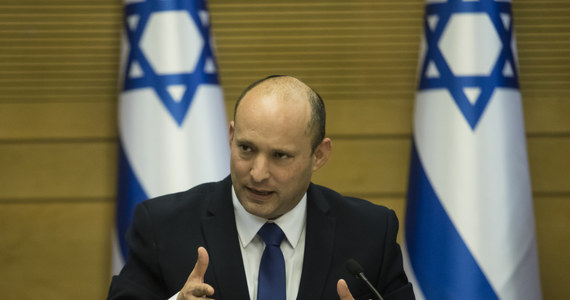Bennett – as he himself announced before his departure – will meet on Monday with the de facto ruler, Crown Prince of Abu Dhabi, Mohammed bin Zajid, to discuss ways to enhance cooperation and deepen economic and trade relations.
A mini delegation without journalists flew from Israel due to concerns about the Omikron variant of the coronavirus.
According to commentators, it is no coincidence that Bennett’s visit comes at a time when Israel and its allies in the Persian Gulf are concerned about Iran’s nuclear program.
In recent weeks, Israeli diplomat Yair Lapid, Defense Minister Benny Gank and Mossad chief David Barnea have met with allies in Europe, the United States and the Middle East to press for a more assertive approach toward Iran, which Israel considers its greatest enemy.
Israel is not a party to the Vienna talks to revive the 2015 nuclear deal between Iran and six world powers, but rather Israel has turned to its allies to help stop Iran’s nuclear programme.
The Vienna negotiations were halted again last week due to Iran’s hard-line stance.
For years, relations between Israel and the Emirates were not public, and during the presidency of Donald Trump, the United States helped negotiate the so-called Abrahamic Agreement, which led to the establishment of diplomatic relations between Israel and the Emirates, and later contributed to the establishment of relations between Israel, Bahrain, Sudan and Morocco in 2020.
These agreements are often recognized as one of the greatest achievements of Trump and then Israeli Prime Minister Benjamin Netanyahu. Netanyahu himself had planned to travel to the UAE several times before the end of his 12-year rule in June of this year.
– In just one year of normalizing our relations, I have already seen the wonderful potential of the Israeli-Emirati partnership. This is just the beginning,” Bennett said shortly before takeoff.
In June this year. Lapid visited the UAE and opened the work of the Israeli embassy in Abu Dhabi.
The United Arab Emirates is the first Gulf country and the third Arab country – after Egypt and Jordan – to establish diplomatic relations with Israel, which has been heavily criticized by the Palestinian Authority, Iran and Turkey.
According to experts, the normalization of relations between the Gulf states and Israel is caused by a shared hatred of Iran with Israel and its preference for traditional support for the Palestinian cause.







